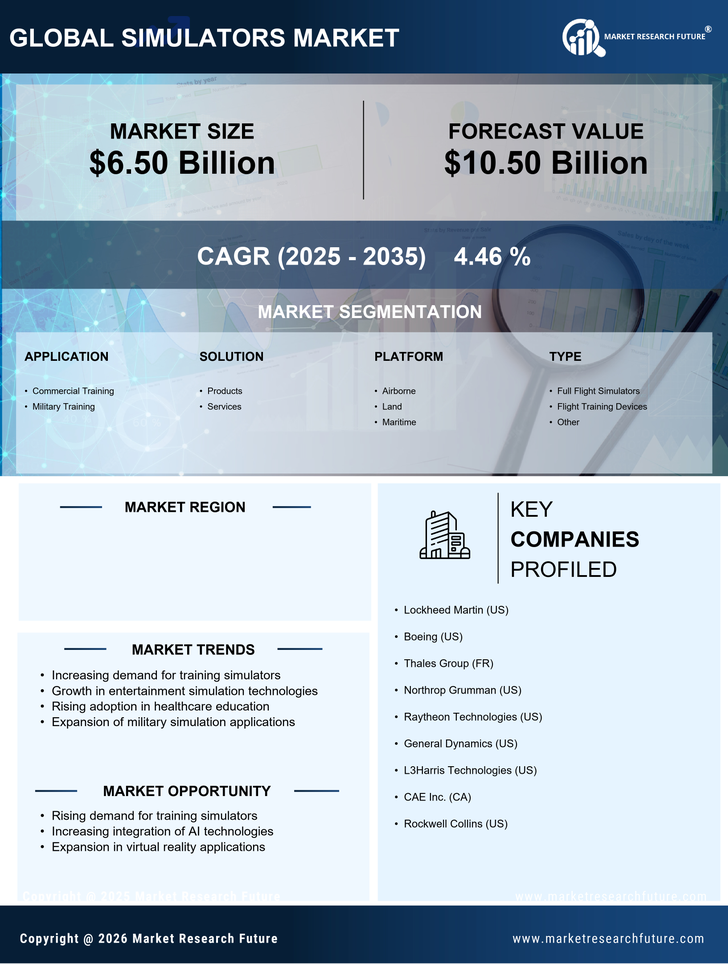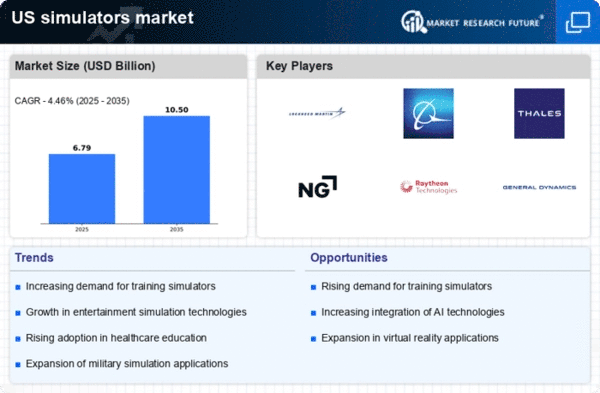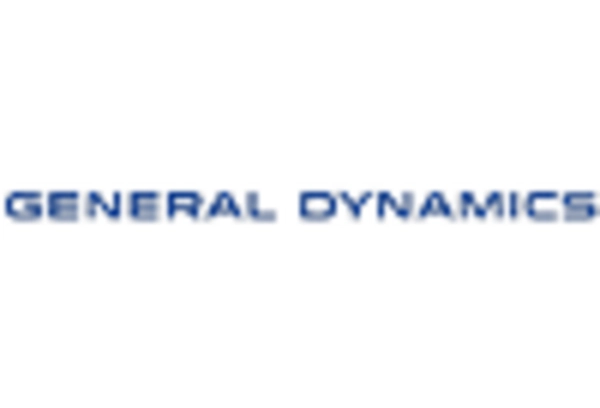Expansion of E-Learning Platforms
The expansion of e-learning platforms is significantly impacting the simulators market, as educational institutions and corporate training programs increasingly incorporate simulation-based learning. The rise of online education has led to a greater demand for interactive and engaging training tools that can be accessed remotely. Reports indicate that the e-learning market in the US is projected to grow by 15% annually, with simulation technologies playing a crucial role in enhancing the learning experience. This trend suggests that the simulators market will continue to thrive as organizations seek to integrate innovative training solutions into their e-learning initiatives.
Increased Focus on Safety and Compliance
The simulators market is benefiting from an increased focus on safety and compliance across various industries. Regulatory bodies are mandating more rigorous training protocols, particularly in sectors such as transportation and healthcare. For instance, the Federal Aviation Administration (FAA) has implemented stricter training requirements for pilots, leading to a heightened demand for flight simulators. This emphasis on safety is driving organizations to invest in high-quality simulation technologies that ensure compliance with industry standards. As a result, the simulators market is poised for growth, as companies prioritize safety and regulatory adherence in their training programs.
Rising Investment in Defense and Aerospace
The simulators market is significantly influenced by rising investments in the defense and aerospace sectors. Governments and private entities are allocating substantial budgets to enhance training capabilities for military personnel and pilots. In the US, defense spending has seen an increase of over 5% annually, with a considerable portion directed towards advanced simulation technologies. This trend indicates a strong commitment to improving operational readiness and effectiveness through sophisticated training solutions. Consequently, the simulators market is likely to experience robust growth as defense and aerospace organizations seek to leverage cutting-edge simulators for training and mission preparation.
Integration of Virtual Reality Technologies
The integration of virtual reality (VR) technologies into the simulators market is transforming the landscape of training and education. VR offers immersive experiences that can replicate real-world scenarios, making training more engaging and effective. In the healthcare sector, for example, the use of VR simulators for surgical training has increased by approximately 30% in recent years, as medical professionals seek to enhance their skills in a risk-free environment. This technological advancement not only improves learning outcomes but also reduces training costs. As VR continues to evolve, its adoption within the simulators market is expected to expand, driving further innovation and investment.
Growing Demand for Realistic Training Solutions
The simulators market is experiencing a notable surge in demand for realistic training solutions across various sectors, particularly in aviation, military, and healthcare. Organizations are increasingly recognizing the value of immersive training environments that enhance skill acquisition and retention. For instance, the aviation sector has reported a 25% increase in the use of flight simulators for pilot training, reflecting a shift towards more effective training methodologies. This trend is likely to continue as industries seek to minimize risks and improve operational efficiency. The simulators market is thus positioned to benefit from this growing emphasis on realistic training solutions, which are essential for preparing personnel for high-stakes environments.

















